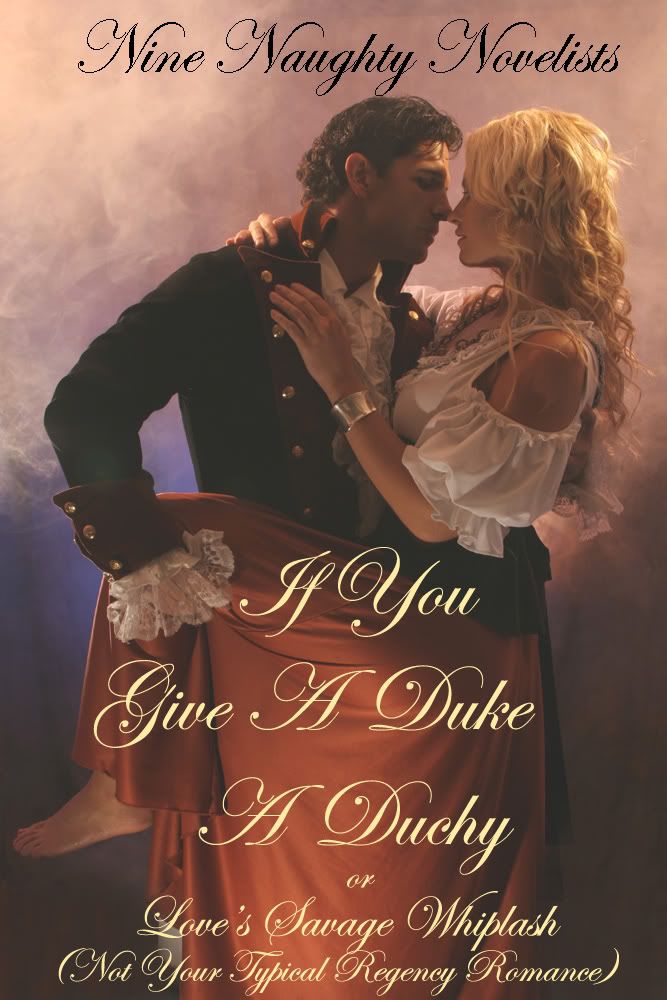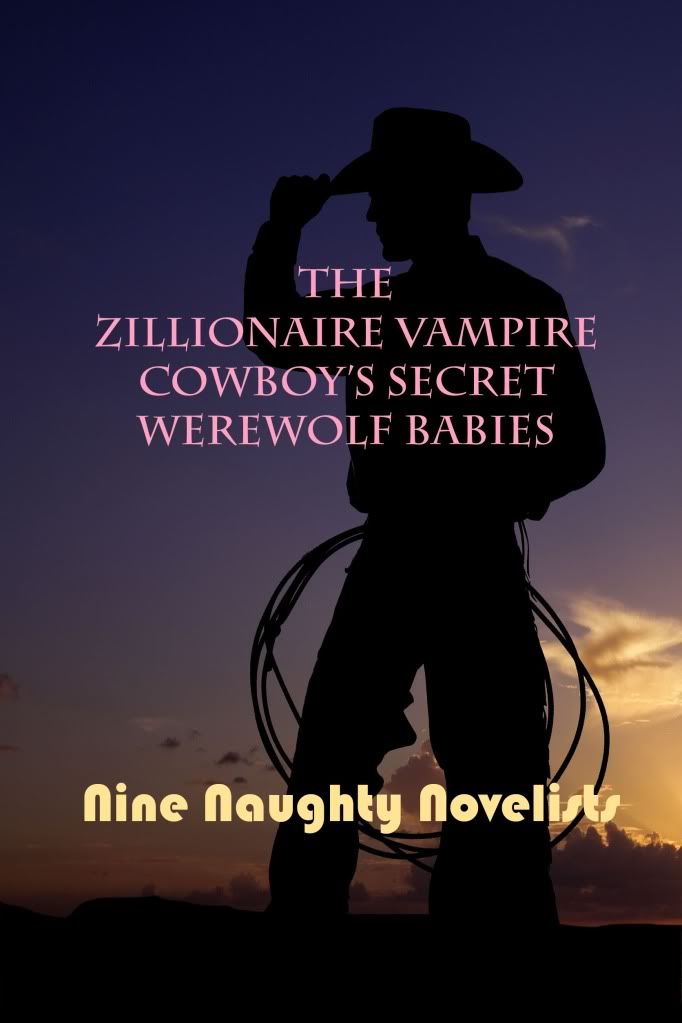
By Kinsey W. Holley
If you’re not a Twitter devotee and you don’t hang out on book blogs, you may not be aware of the controversy surrounding Harlequin’s new “self-publishing” line. If you’re vaguely aware of Harlequin’s announcement, you might be wondering what all the fuss is about. I’ve dashed off some thoughts because, frankly, the post I’d planned to write for today, about writing what you know, turned into a long, gooey mess. I’m going to work on it, but in the meantime this Harlequin thing exploded and the more I think about it, the more appalling I find it. And, at the risk of sounding patronizing, I’d like to address some issues that might be unfamiliar to aspiring writers. If you’re an aspiring author and you’re not familiar with the business of publishing, feel free to post your thoughts and questions.
Feel free to comment as well if you disagree with what you read here. This post represents my opinions only. This is a complicated issue with a whole bunch of knotty ethical and practical implications, and I think it merits discussion. I’m only going to scratch the surface here.
First off, for an excellent recap of the whole thing, go read Jackie Kessler's superb summation. When you’re done, come back and read this, because I’m going to focus on just two things: self-publishing vs. vanity publishing, and why I think what Harlequin proposes is deeply deceptive to aspiring authors and potentially damaging to published authors.
You’ll notice I put self-publishing in quotes up there, as if I don’t think Harlequin Horizons is really a self-publishing venture at all. And I don’t, because it isn’t. Self-publishing is, by definition, something an author does herself. If you want to get a really firm handle on the subject, go read about it at Moriah Jovan’s website. Self-publishing is a valid, workable business model for some authors, and Moriah is one who’s doing it right (and profitably). Thanks to the Internet in general (Amazon.com in particular) and print on demand technology, some of the stigma that’s long adhered to self-publishing seems to be wearing off. There have been some recent success stories involving authors who published their own books, caught the attention of New York publishing houses, and went on to sign contracts. I expect to see more such stories in the future.
But.
What Harlequin, in partnership with Author Solutions, proposes to do isn’t self-publishing – it’s vanity publishing.
In self-publishing, an author contracts with various people and companies – editors, artists, printers, distributors, etc. – to handle those aspects of production that she can’t do herself. Most importantly, the author owns the ISBN and keeps all the profits from the book.
That’s not what Harlequin will offer writers. Harlequin Horizon will charge authors to have their work critiqued and printed. How much an author pays depends on what she wants. A first chapter review will cost $342.00; a full-length manuscript edit could cost $6,000 or more. Harlequin won’t market or distribute the book – the author will have to pay for that, in addition to paying for the editing. And on top of that, if the author manages to sell her book – by putting it on Amazon, convincing local bookstores to carry it (good luck with that), going door to door, whatever – Harlequin will take half – HALF – the revenue. The only difference between Harlequin’s proposed venture and what vanity publishers have done for years is that the Harlequin Horizons double H logo will appear on the spine. The book won’t carry the traditional Harlequin brand.
A favorite maxim of writers is that money flows to the author. Nowadays that rule isn’t as hard and fast as it used to be. Over the past few years, it’s become standard for authors to spend their own money on advertising and promotion. Only the most successful authors are given big promotional budgets. Charlene Harris, for instance, published a bunch of books before the Sookie Stackhouse series exploded, but it wasn’t until the success of that series that her publisher paid for her promotional tours.
Paying for advertising, though, is a far cry from paying a publisher for the privilege of seeing your book in print. That’s where Harlequin is trying to hook the aspiring writer, and that’s why Romance Writers of America, Mystery Writers of America, and a whole lot of other writers in America and elsewhere think what Harlequin’s doing is sleazy and unethical. It’s not, as some have alleged, that authors are afraid of increased competition. The publishing industry has always been intensely competitive. What Harlequin aims to do will take advantage of unpublished authors who may not be familiar with the publishing industry. I’m a capitalist, a free market proponent, and a big believer in caveat emptor, but that doesn’t mean I won’t call something sleazy when I think it is.
If you’re a writer, and you’ve spent years trying to sell your book, you might think this represents a new avenue of opportunity. Sure, you have to pay out in the beginning, but you’ll get to be a Harlequin author, right?
Wrong. The writer won’t be a Harlequin author. She won’t have the benefits of Harlequin editorial expertise, Harlequin distribution channels or Harlequin marketing, or even Harlequin branding. (Too heavy on the italics? Sorry. I'll stop now.)
A writer will submit a manuscript. Harlequin will say “sorry, we don’t think your book is right for our markets. But hey – if you really want to get published, why don’t you pay us and we’ll print the book? And if the book sells, maybe we’ll offer you a contract and (maybe) we’ll take over the distribution and marketing and everything else.” Meanwhile, if the book has sold well enough to merit this contract offer, Harlequin’s already been making money on it.
So an author puts up all the money and assumes all the risk, thinking she’s been offered an opportunity to become a “Harlequin author,” when in fact Harlequin’s participation will be, as far as we know at this point, invisible to the reader.
Harlequin has risked nothing, paid for nothing. The author has assumed all the risk, but gets only half the reward. A writer could pay a freelance copy editor a lot less than Harlequin proposes to charge, could contract with Amazon’s Create Space to handle the printing and distribution, could do her own marketing and, probably, would sell just as many books as she would if she’d paid Harlequin.
Know what I think could happen? Maybe I need to be fitted for a tinfoil hat, I don’t know. But I’m wondering – why wouldn’t Harlequin cut the number of contracts they’re offering (cut it further, that is, than they already have) and instead start offering their “self publishing” option to those authors whose books they think might sell? In other words, the books they would’ve paid for before, they’ll now charge for. The publishing industry is suffering from the recession, just like everyone else. The big houses are slashing their staffs and buying fewer titles. Even midlist writers are losing contracts as publishers pour all their money into their established best sellers. If Harlequin’s come up with a risk-free way to make money off new authors, why won’t they do it?
I haven’t even mentioned the fact that the company Harlequin’s partnered with, Author Solutions, doesn’t have a particularly good reputation among authors.
As it stands right now, RWA and MWA have stated that this venture will result in Harlequin’s removal from these organizations’ lists of approved publishers, which in turn means that Harlequin writers will be ineligible for the RITA, the Golden Heart, the Edgar, and other awards. Science Fiction Writers of America may be moving in the same direction.
This whole situation seems to be changing by the hour. Harlequin, I think, is kind of shocked by the reaction, which indicates to me that they didn’t properly think this thing through. I was so pleased – thrilled, really – when they announced the formation of Carina Press, their new epublishing arm, and that Angela James would be the Senior Editor. That was a savvy move on their part. This one, not so much. I wouldn’t be surprised to see them announce that they’re reevaluating the idea in the coming days, in which case much of what I’ve written here might be moot.
In the meantime – anyone have any thoughts? Let’s hear them.


















8 comments:
Good analysis Kinsey, and great info. I too blogged about this, about what the longer term implications of this move could be
http://building-castles.blogspot.com/2009/11/is-this-future-of-publishing.html
A lot of chat is focusing on the immediate implications for HQ authors - will they keep their PAN status, what will happen at the RWA convention, etc. but for me the bigger picture is much more troubling.
Kinsey, I completely agree with what you've said, and excellent explanation of self-pub vs. vanity pub. And THANK YOU for mentioning the caveat emptor. Publishing with anyone before doing good research is like buying a car without a test drive or mechanic's inspection. I'm happy RWA/MWA are standing up for their authors, but if someone wanted to be a Harlequin author so desperately they went for HH... well, they just willingly drove off with a lemon. But RWA's stance has been awesome -- the kind of support we authors like to see in light of the possibility a seemingly respectable publisher turns out to be sleazy. It looks like we'll be able to count on RWA's swift and strong support in those instances.
Skylar
Skyler:
I agree with you about RWA's response - I was pleased at the swiftness and decisiveness of it. I've never been all that rah-rah about RWA because of their stance on epubs - I think the organization is important, and it has a vital role to play as author advocates, and it's always annoyed me that they choose to marginalize those of us in the epub world. I'll admit to snickering when the Carina Press launch was announced, because I figured it would take some of the more anti-epub biggies at RWA (like, um...officers who are Harlequin authors?) by surprise.
Then HQ goes and harshes the Carina vibe by announcing this dumbass venture. And I was very gratified by RWA's stance.
I agree with both of you, Kinsey and Skylar. I too have been disapointed with the RWA position on epublishers, but at least this decision is consistent with what they were saying - they are looking out for authors' best interests. But I hope they can now also see that charging an author to publish a book is SO much worse than a different payment structure (no advance vs higher royalties).
I have so many things to say about this, I don't know where to start! So I'll pick just one. Only a few months ago, I crossed the threshold between "aspiring" and "pubbed," so the intensity of that longing to be published is very fresh in my mind. The idea that a respected publishing company would try to make money off that longing is like a knife in the back. A rejection is one thing -- you lick your wounds, you get back to work, you try again. A rejection coupled with a patronizing "give us some money and you'll have a book in your hands" is downright cruel. It's like offering a poisoned apple. It turns a legitimate dream into a mockery, a mirage that disappears before your eyes ... along with your money.
That disgusts me. To other aspiring authors, I'd say, don't let them do that to you! Hang on to your belief in yourself and the (eventual) value of your work.
Am I overreacting? ;) I don't know. I think this was a cynical, sleazy move on HQ's part.
I was quite disturbed when I read the figures HQN was expecting writers to pay to participate in the Horizons process. There is a sense of accomplishment to have an editor say they like the ms submitted. It is being reviewed by a professional in the field and judged for talent and merit. Why would a writer want to short change herself by missing the wonderful oppotunity that even a rejection letter can bring. There is growth in the entire process to be had and allows us to grow as a writers. Vanity publishing waters down the choices for consumers. If I was a HQN author I would be up in arms as well. WTG RWA! Very proud to be a member.
Juniper, I know exactly what you mean - I was first published in June. It still freaks me out, and I agree with you about the cynicism and sleaziness of HQ's venture.
And Pauline - I can't figure out why HQ thinks a lot of people will be able to afford those prices. Are there that many aspiring authors who have that kind of money?
One other comment on the RWA's stance: yesterday at the local RWA meeting, our region rep pointed out that at least half of the RWA board members are, in fact, HQ authors. That underlines the bravery of their stance, but it also tells me that there will probably be some kind of accommodation reached within a few months (possibly with HQ making Horizon a separate, stand-alone enterprise).
Post a Comment